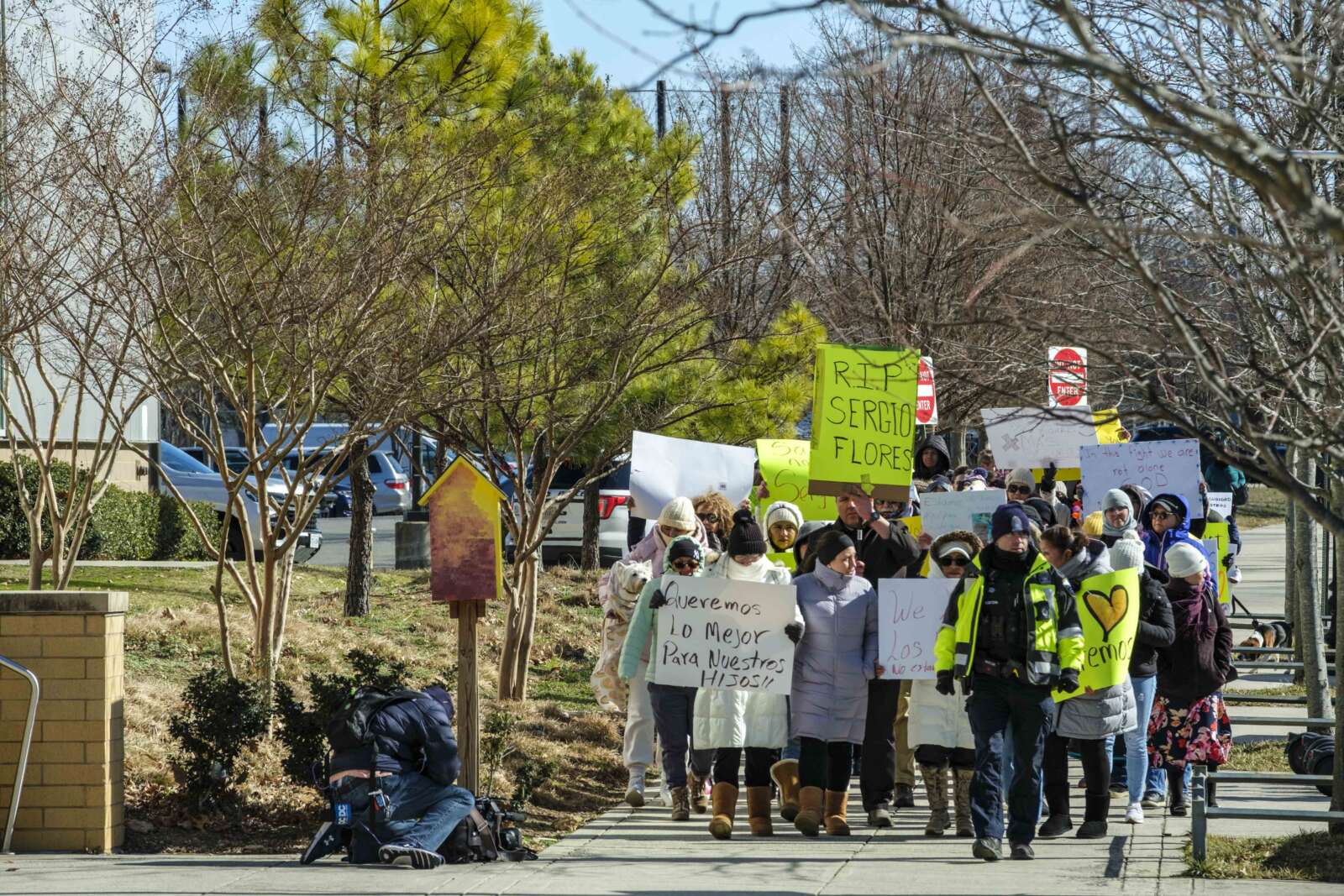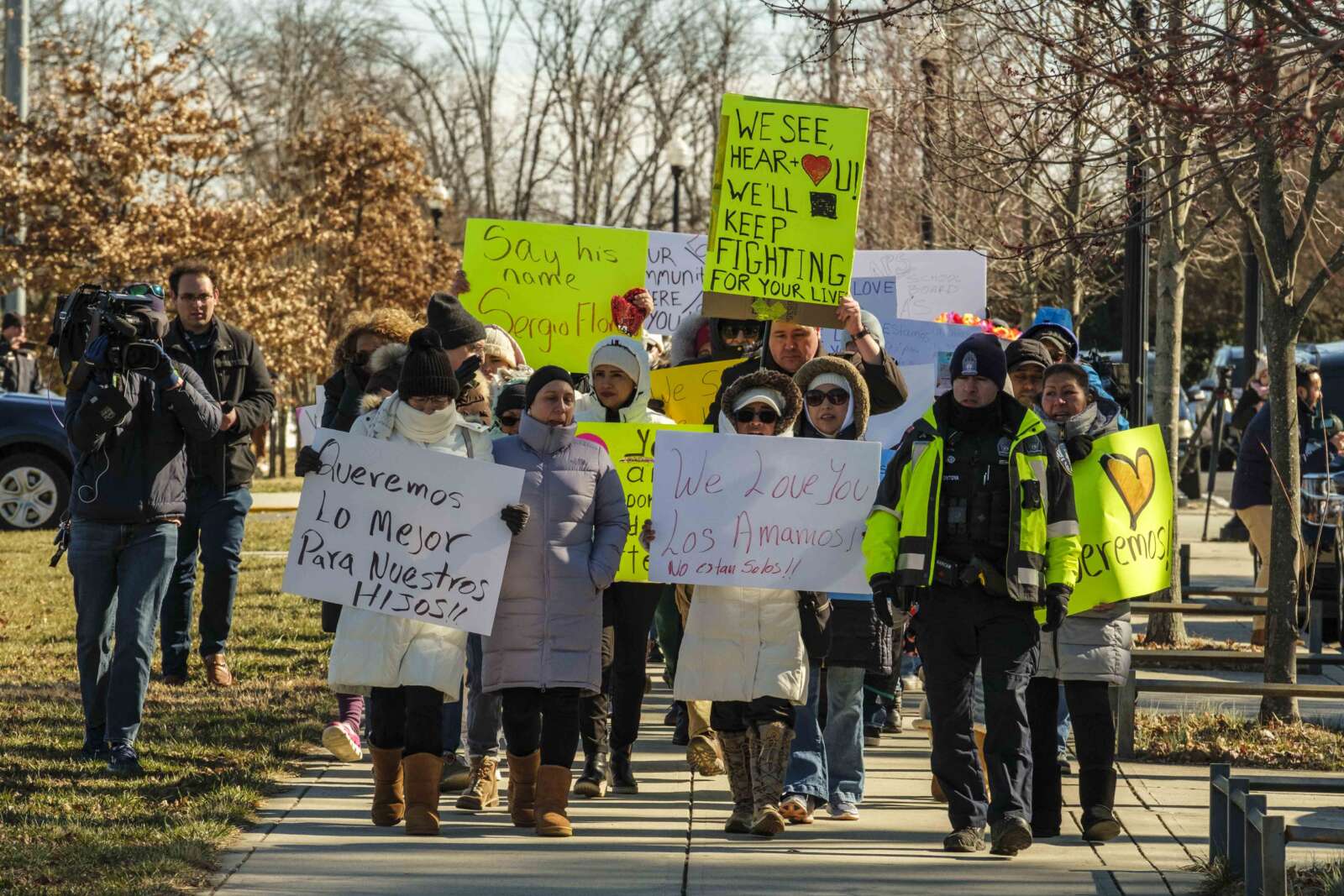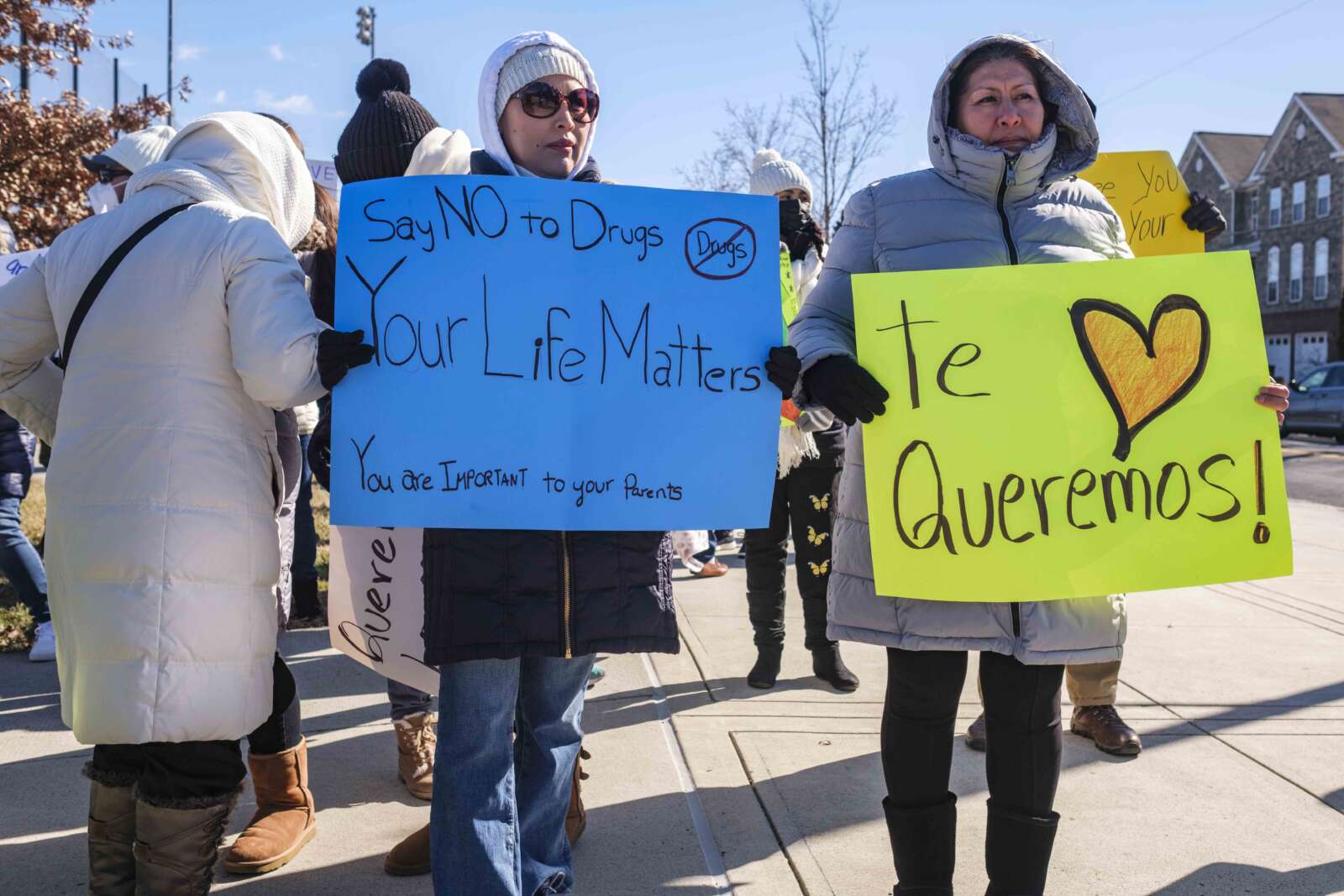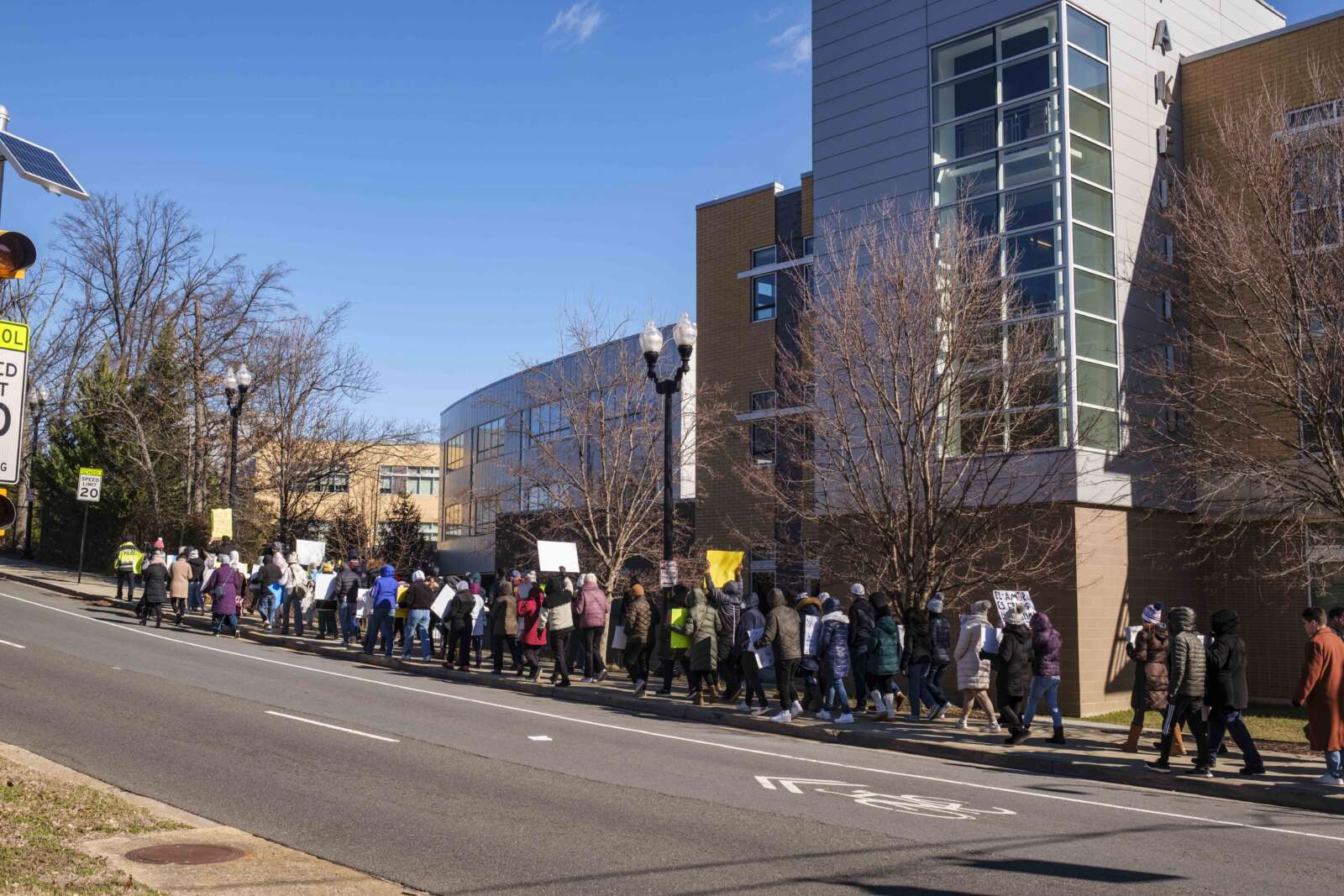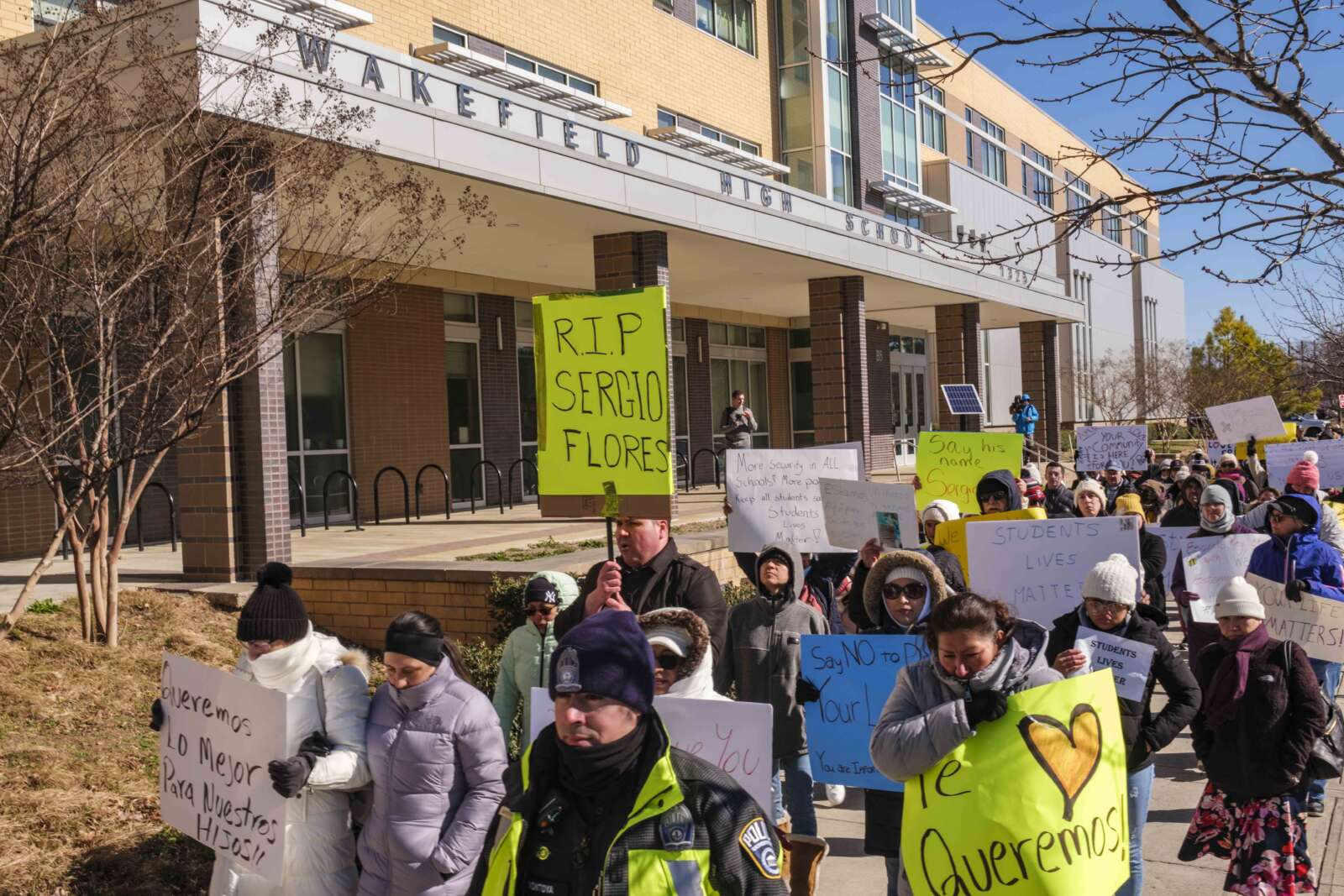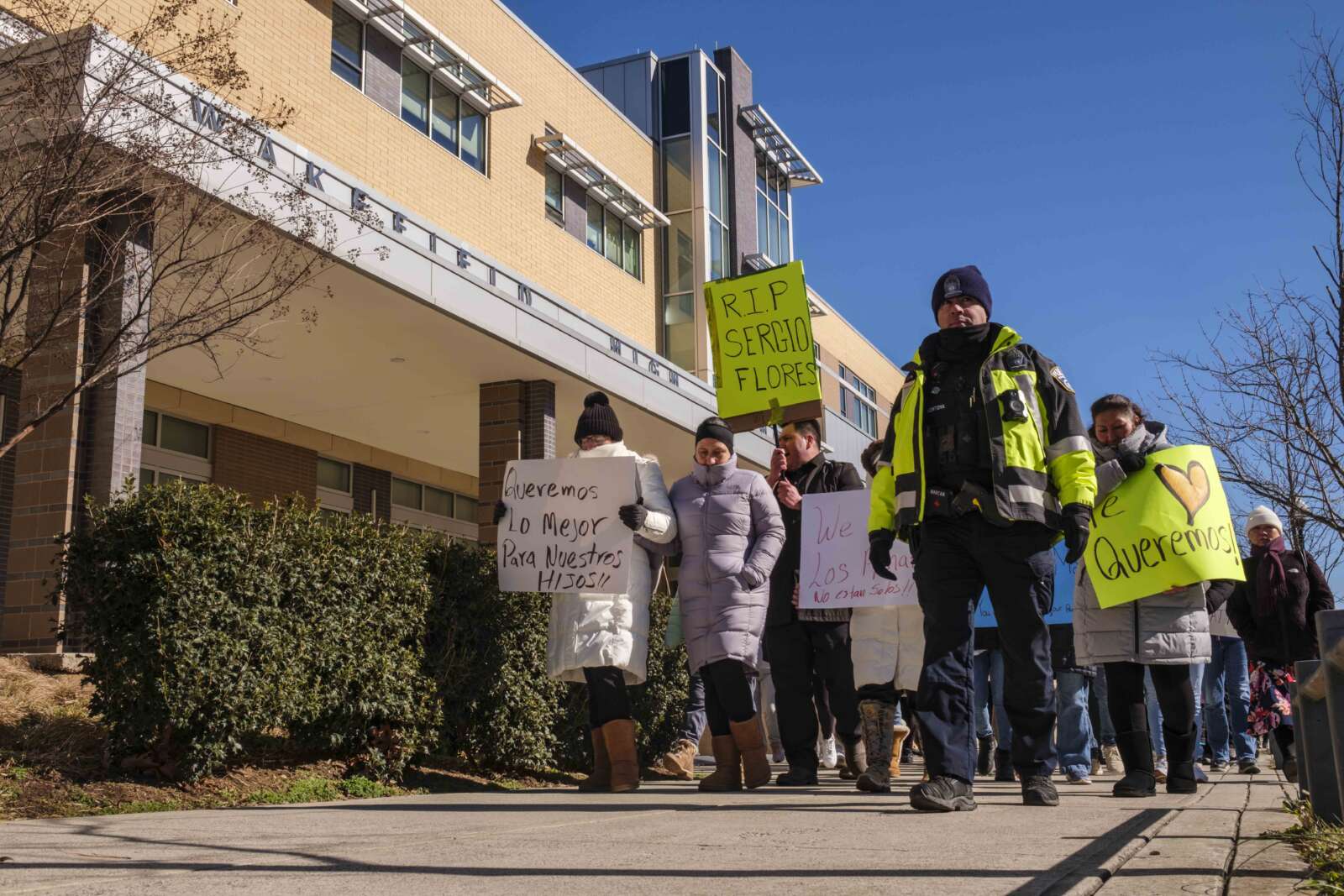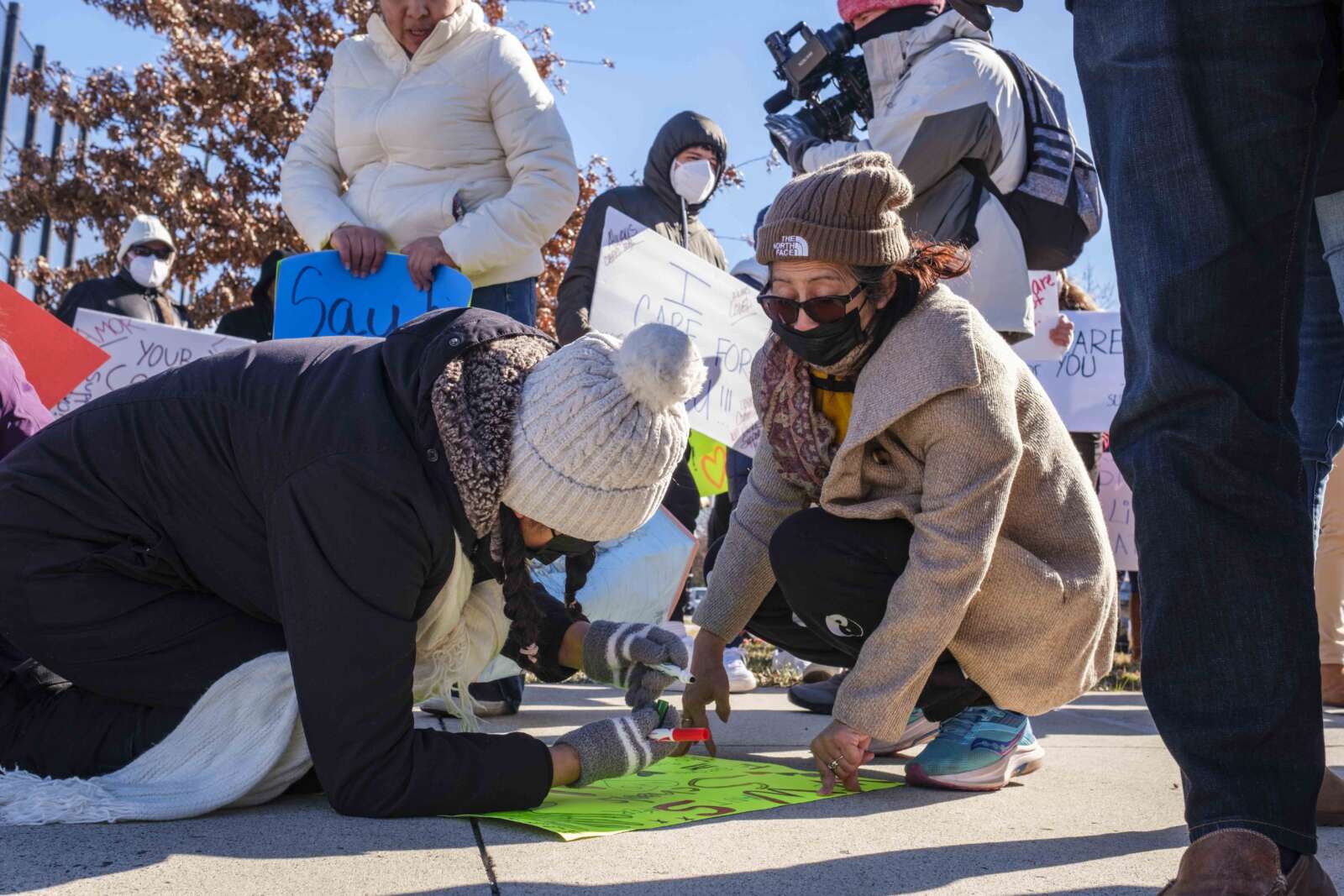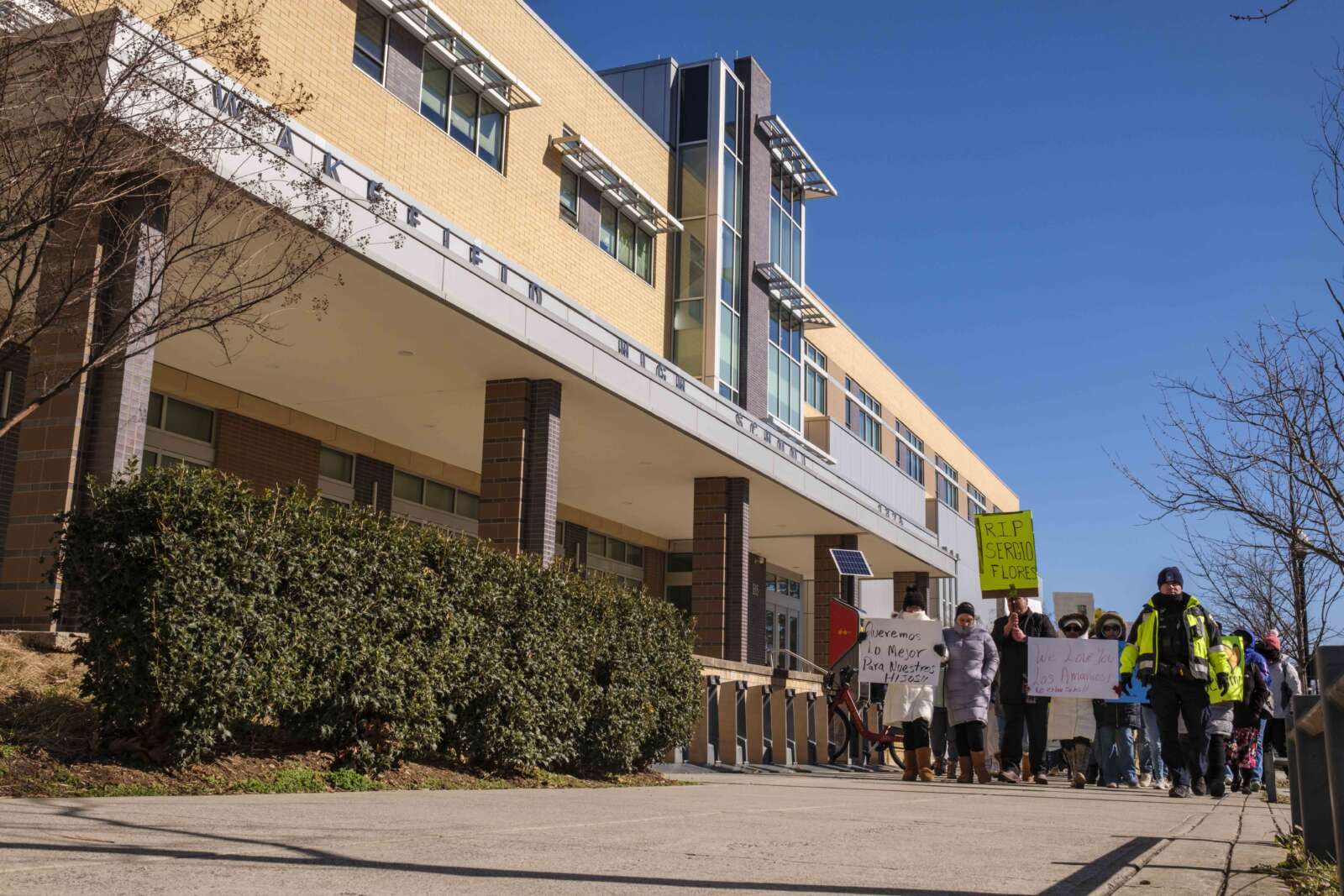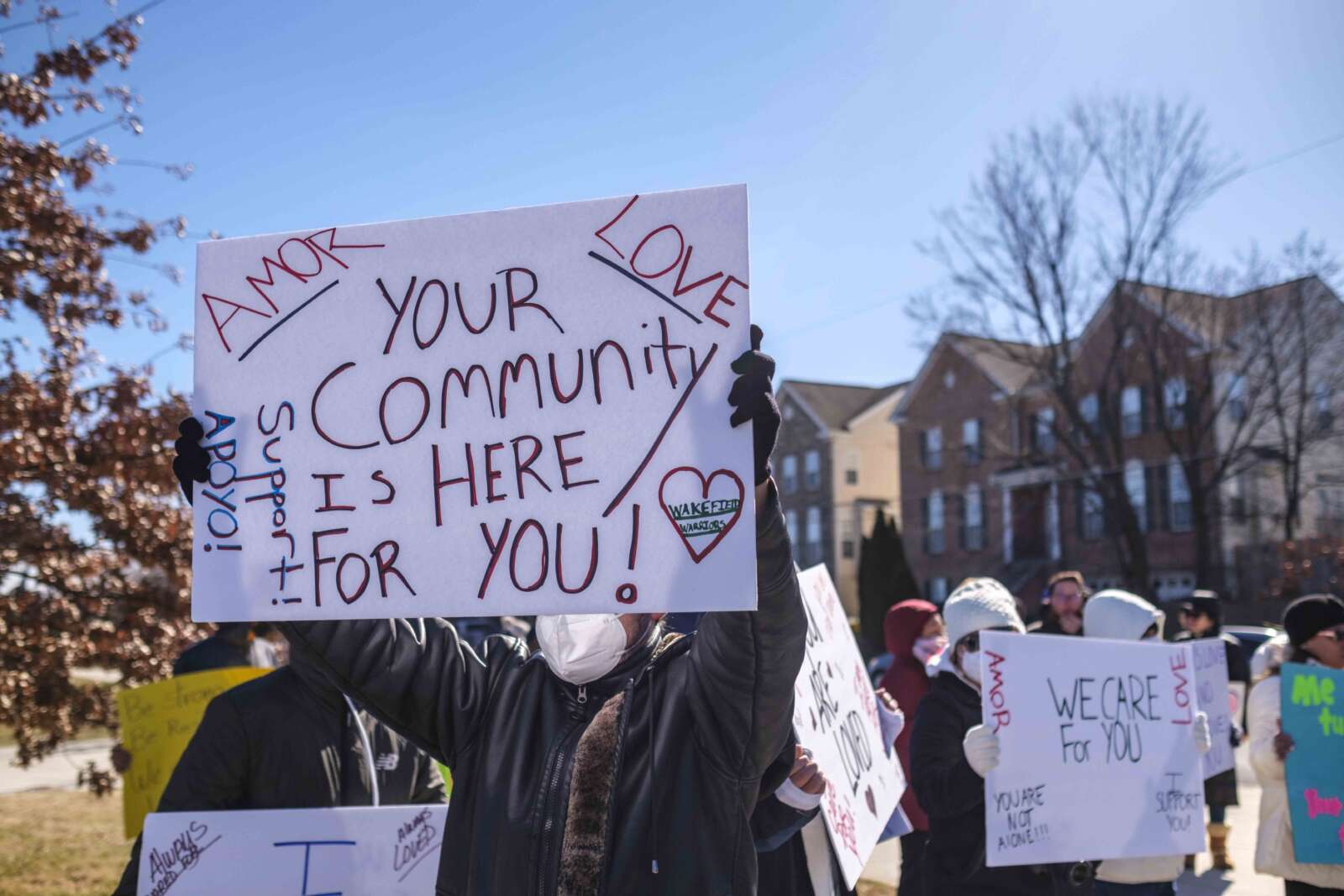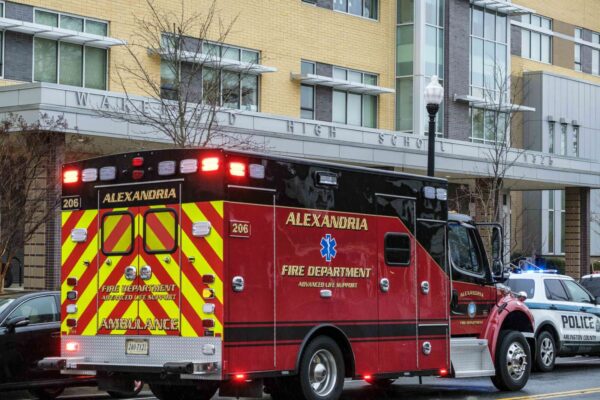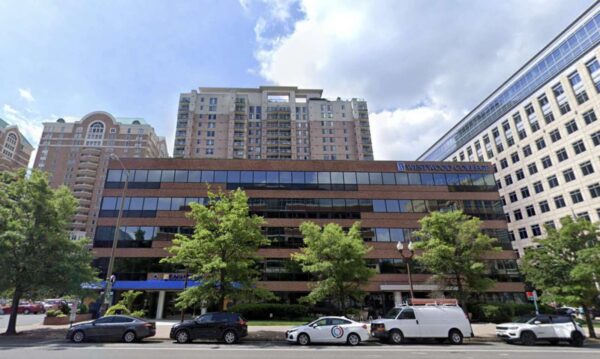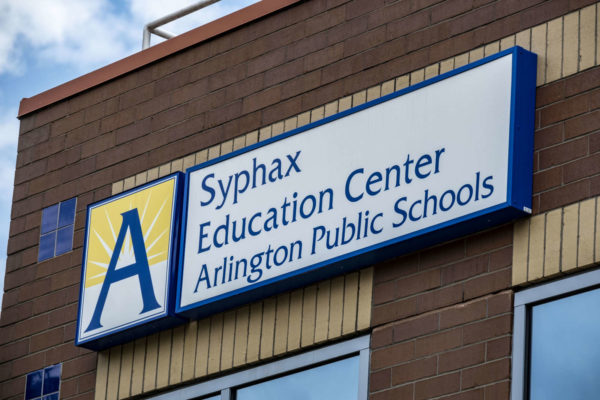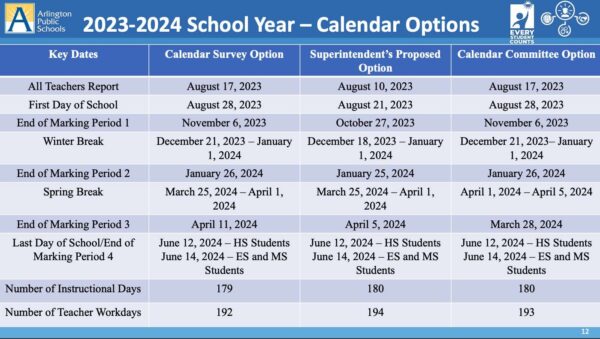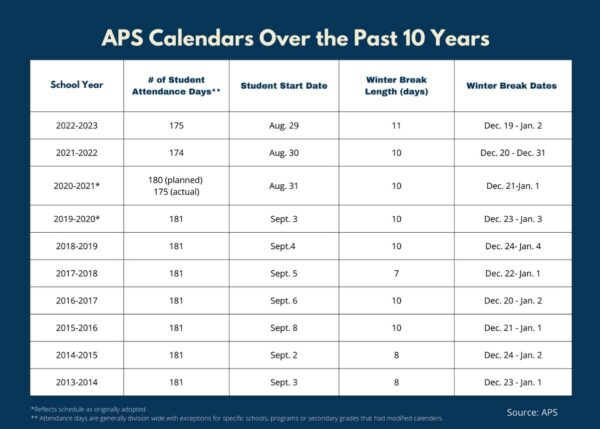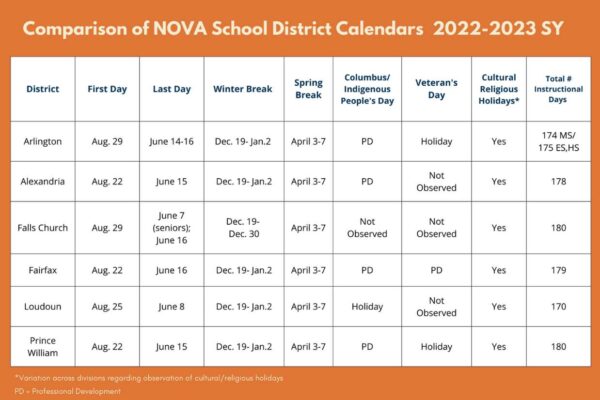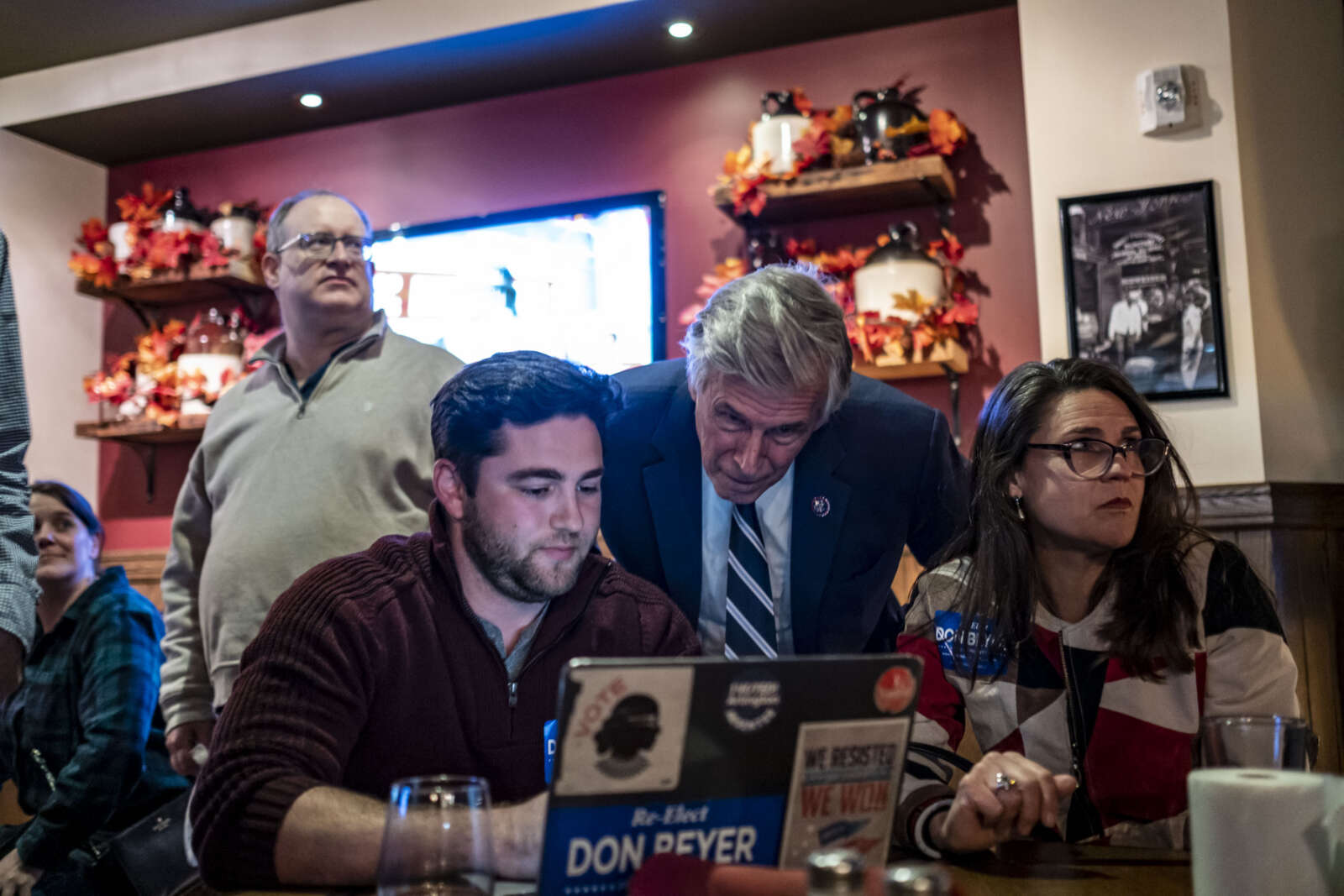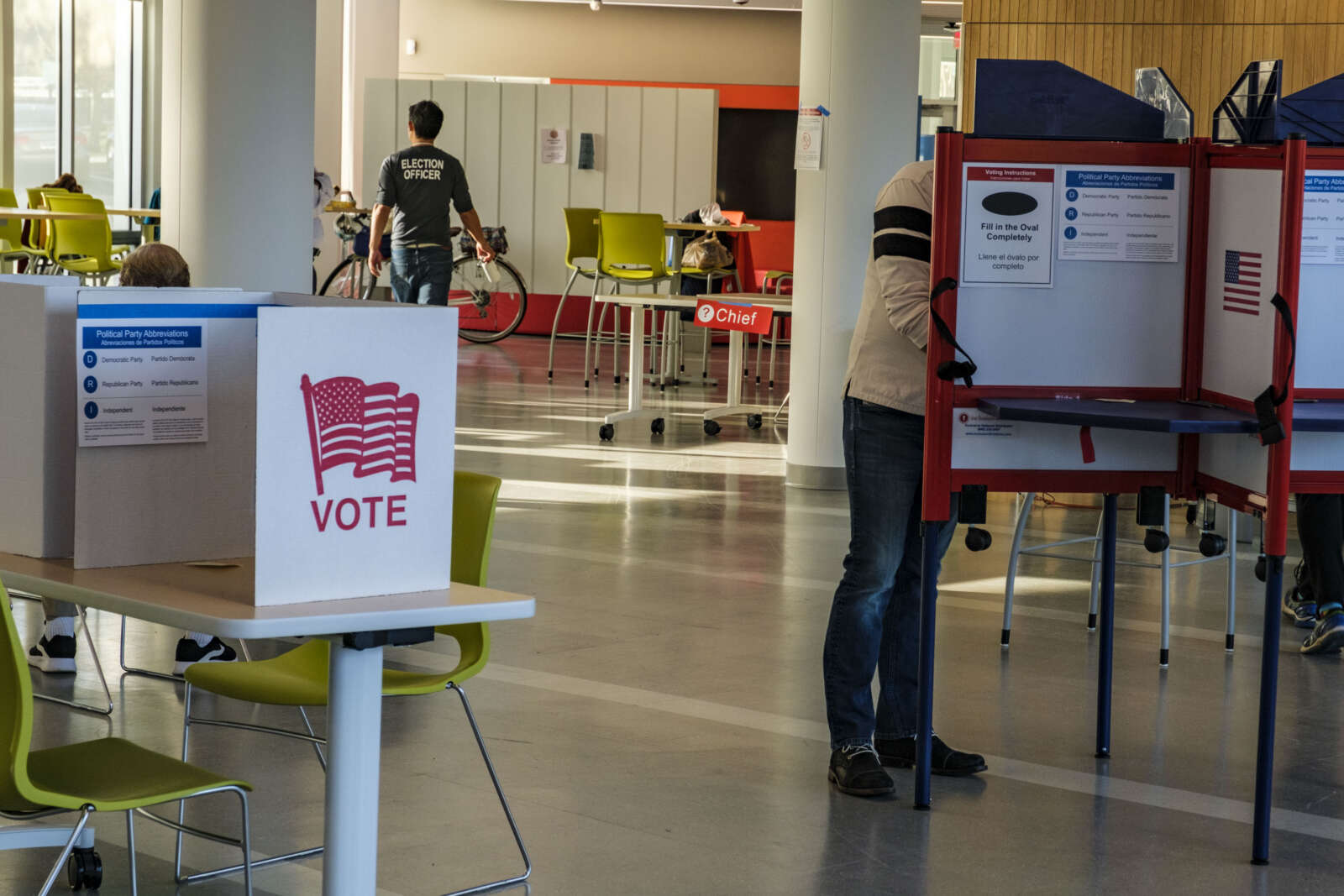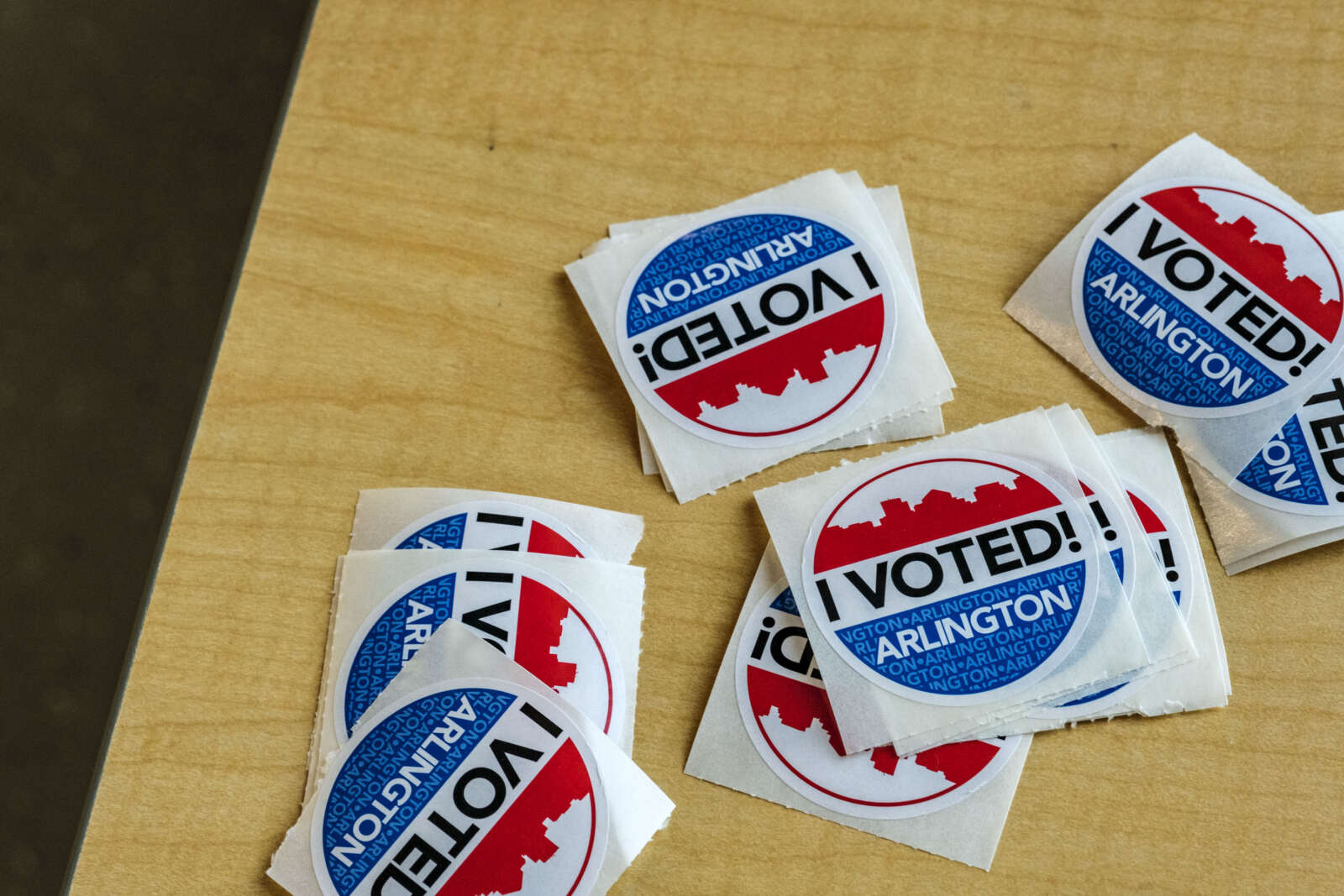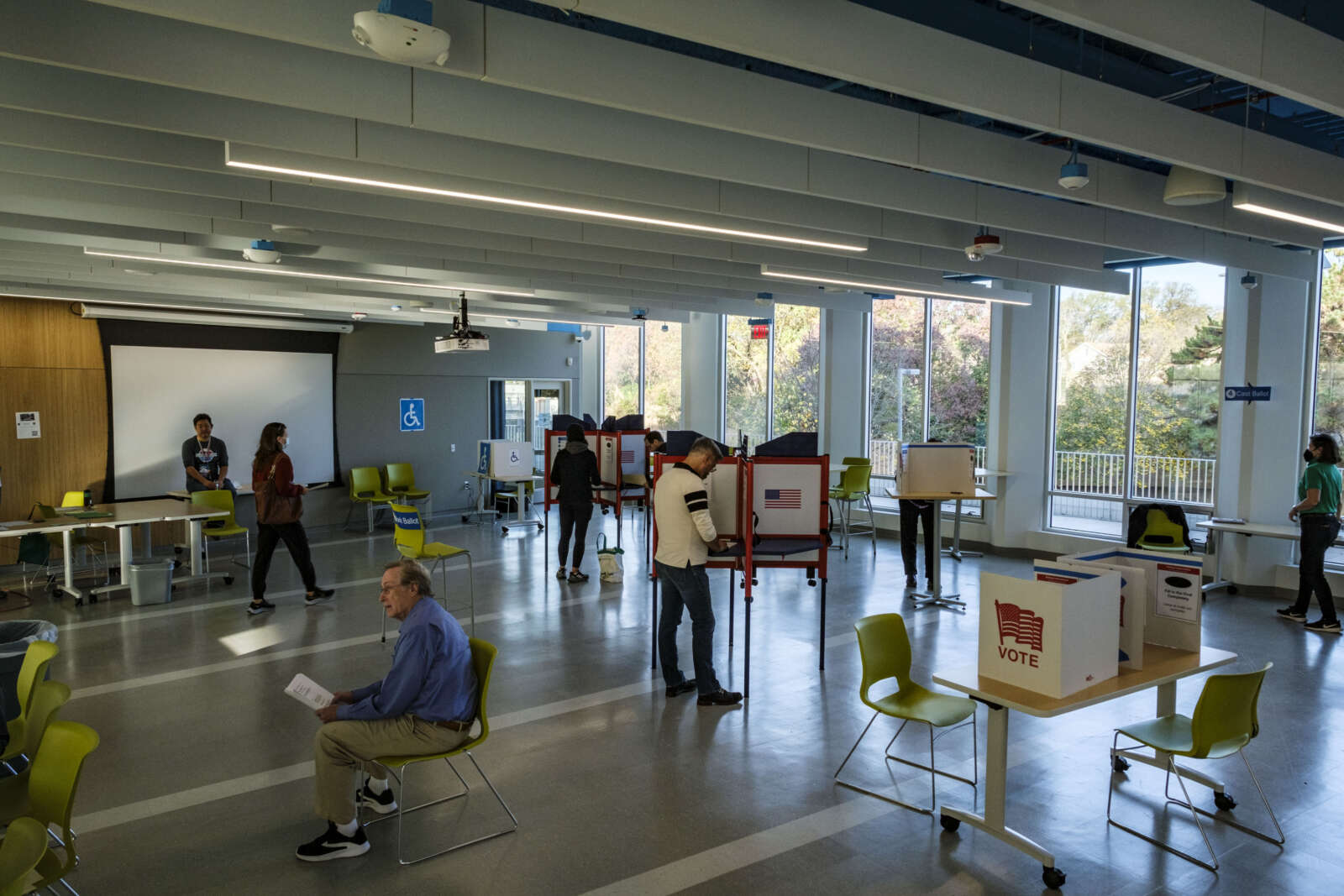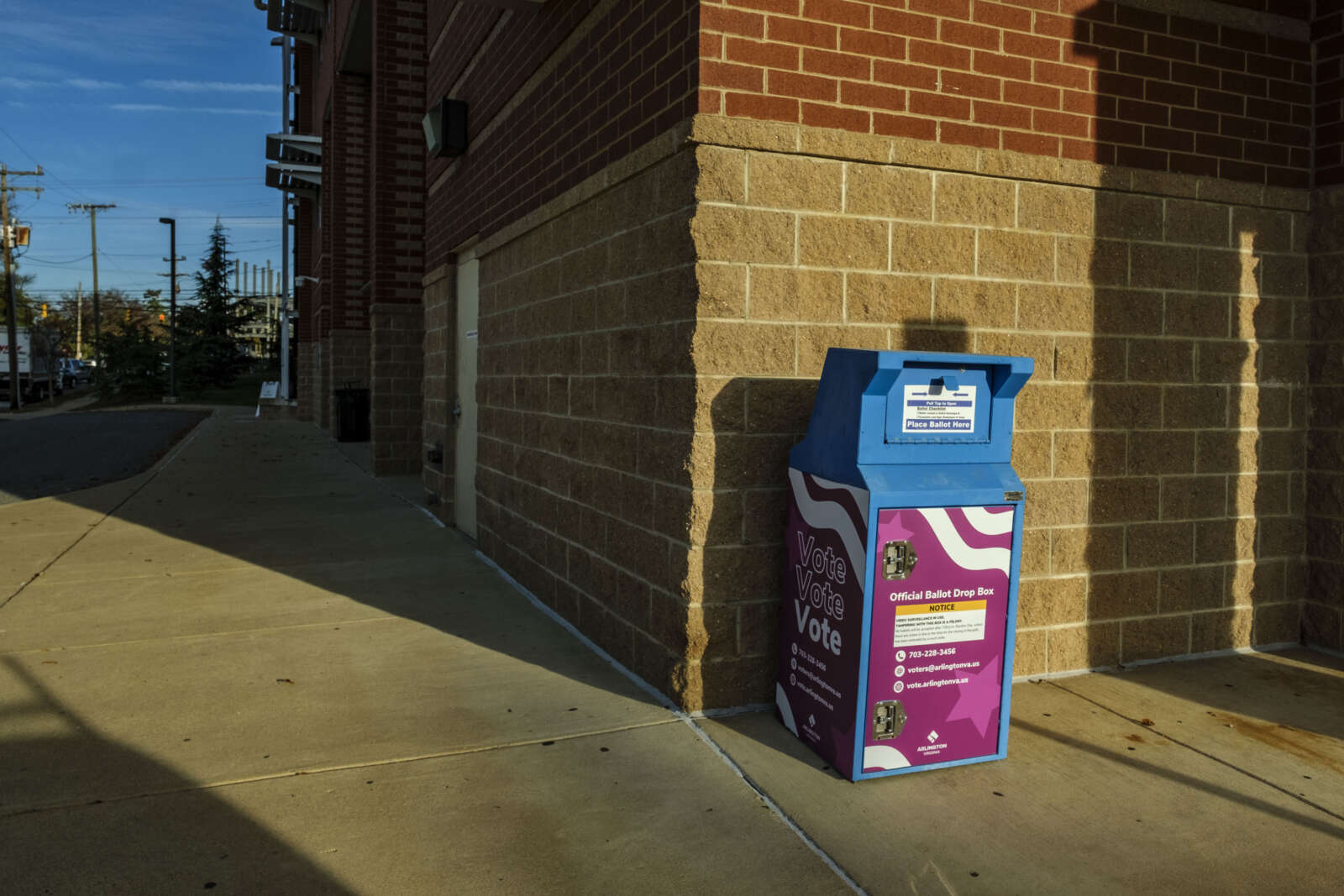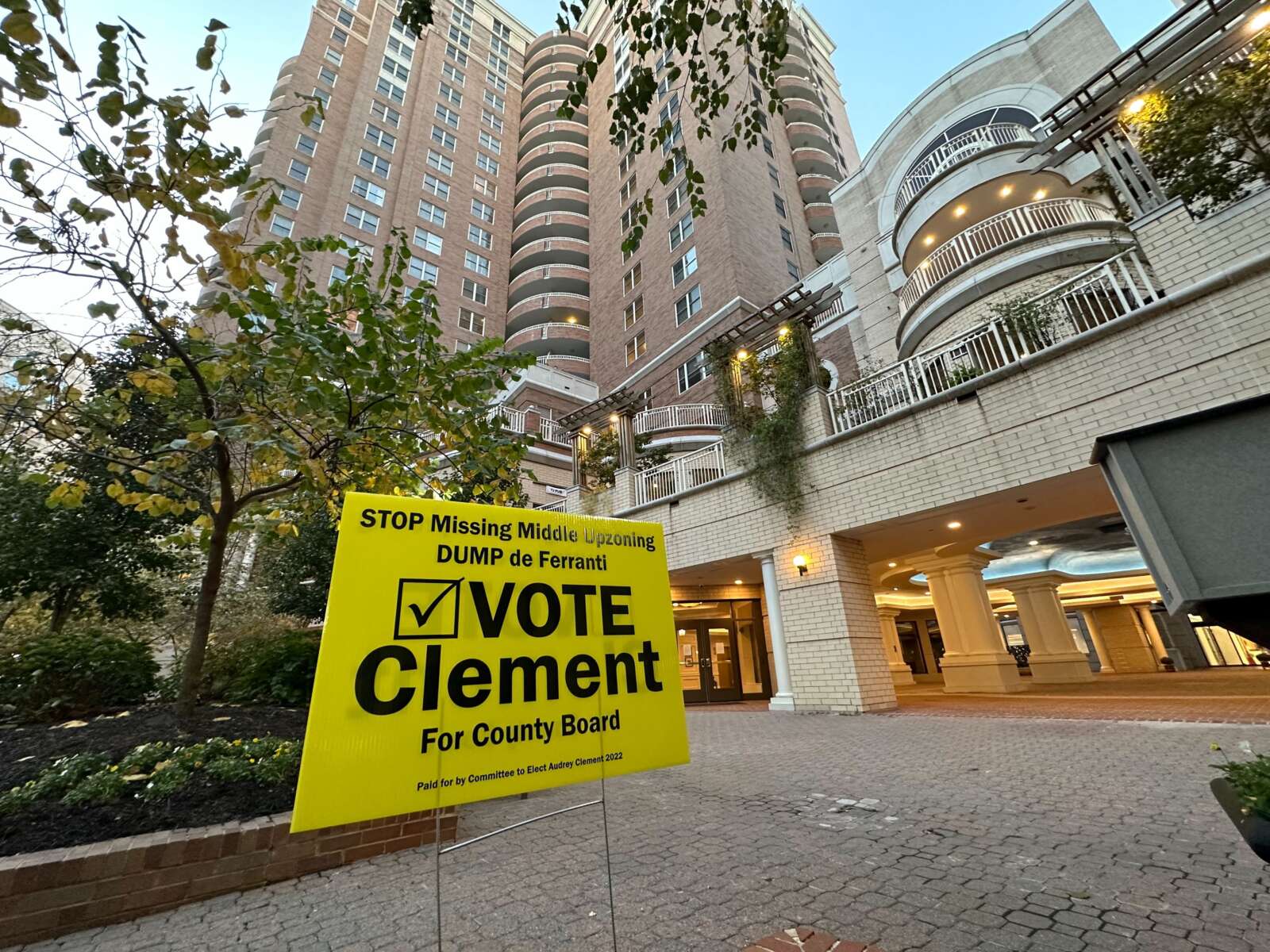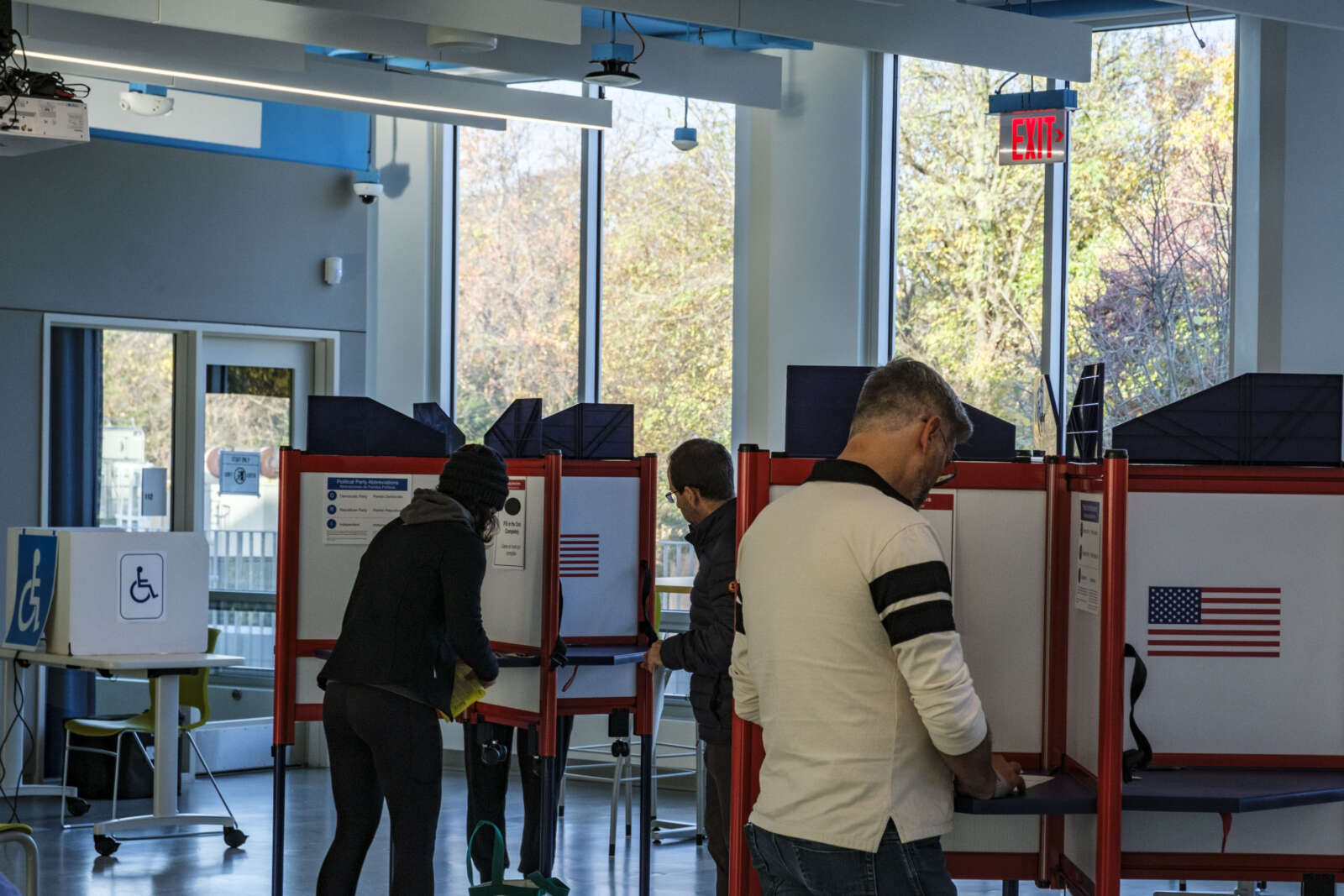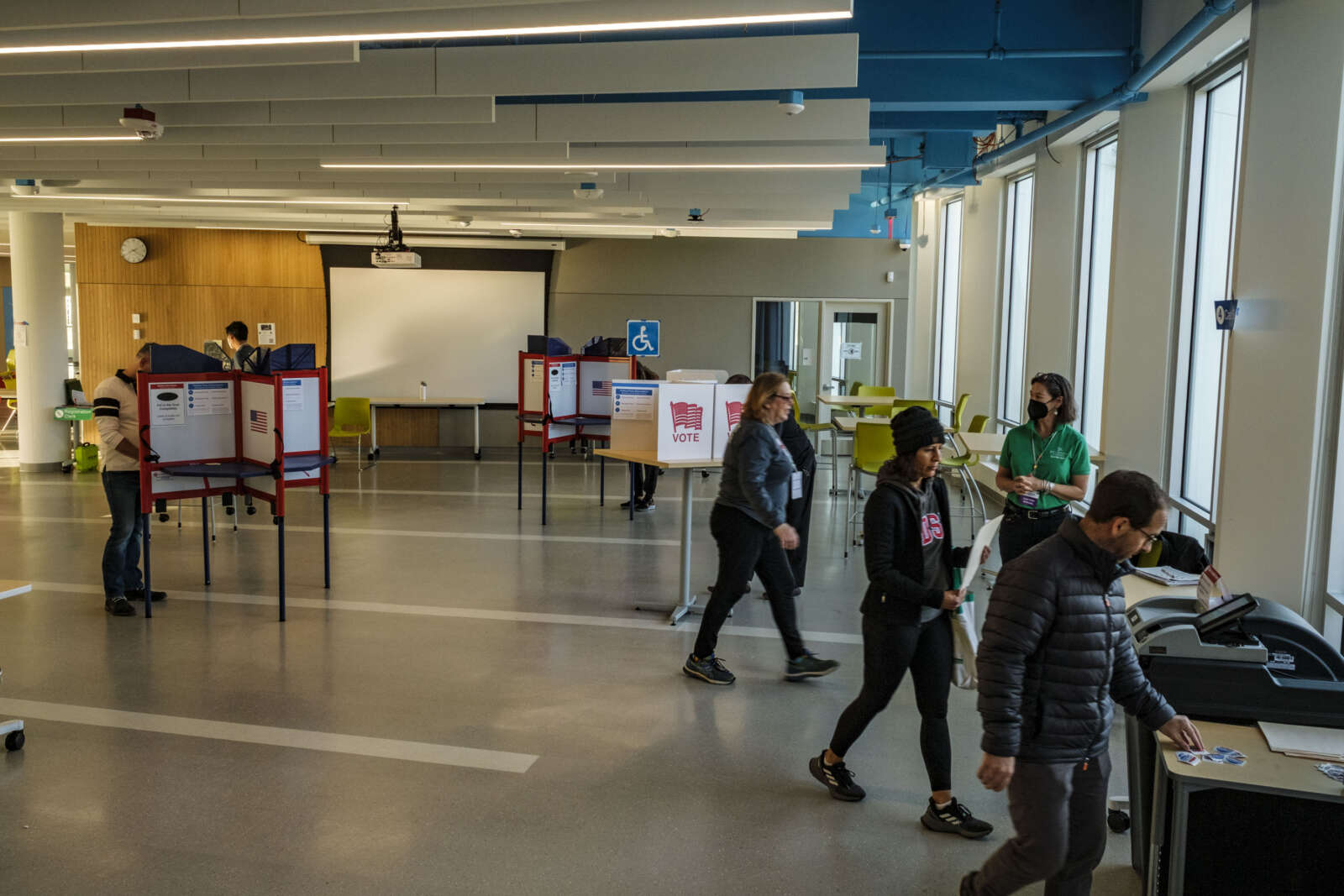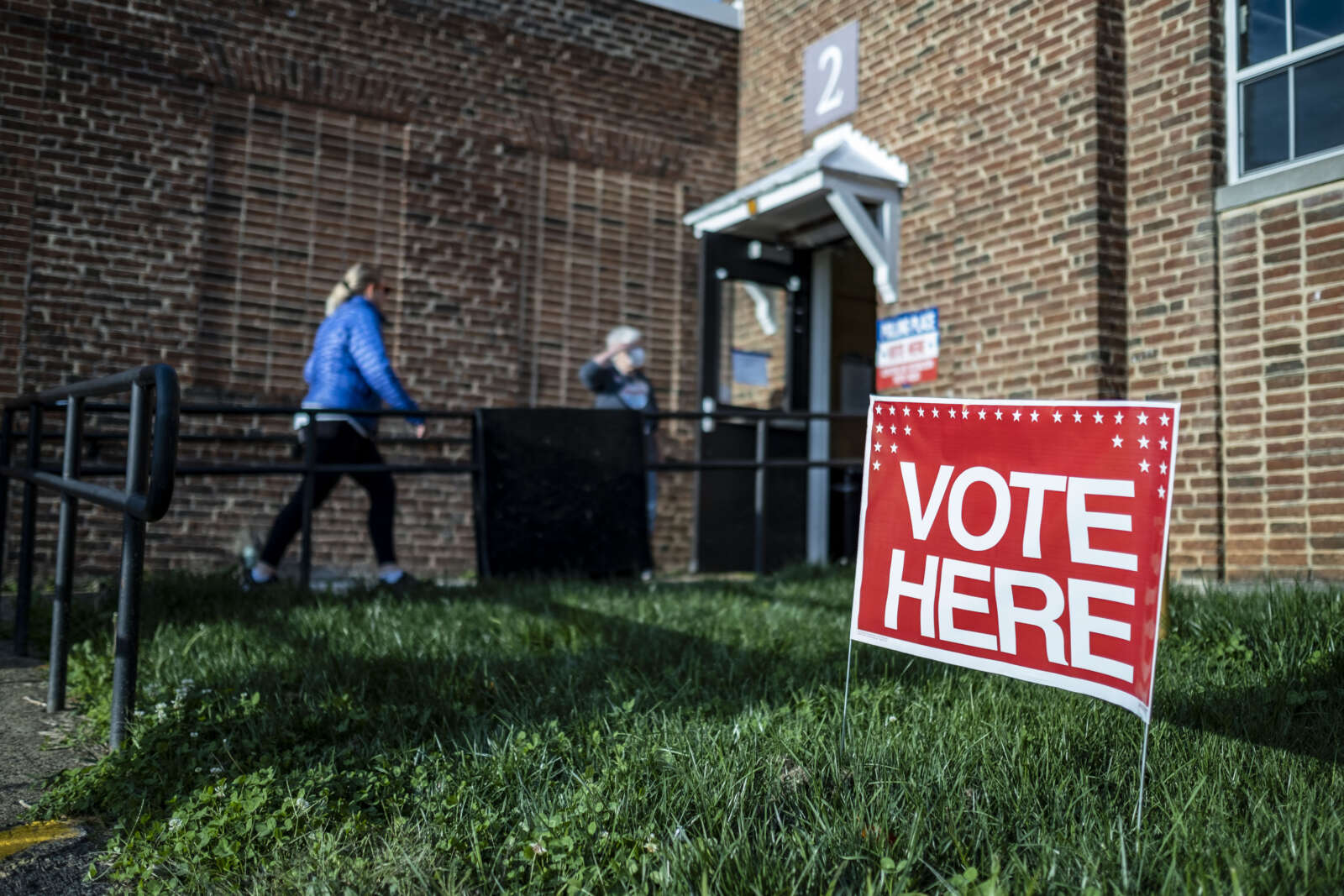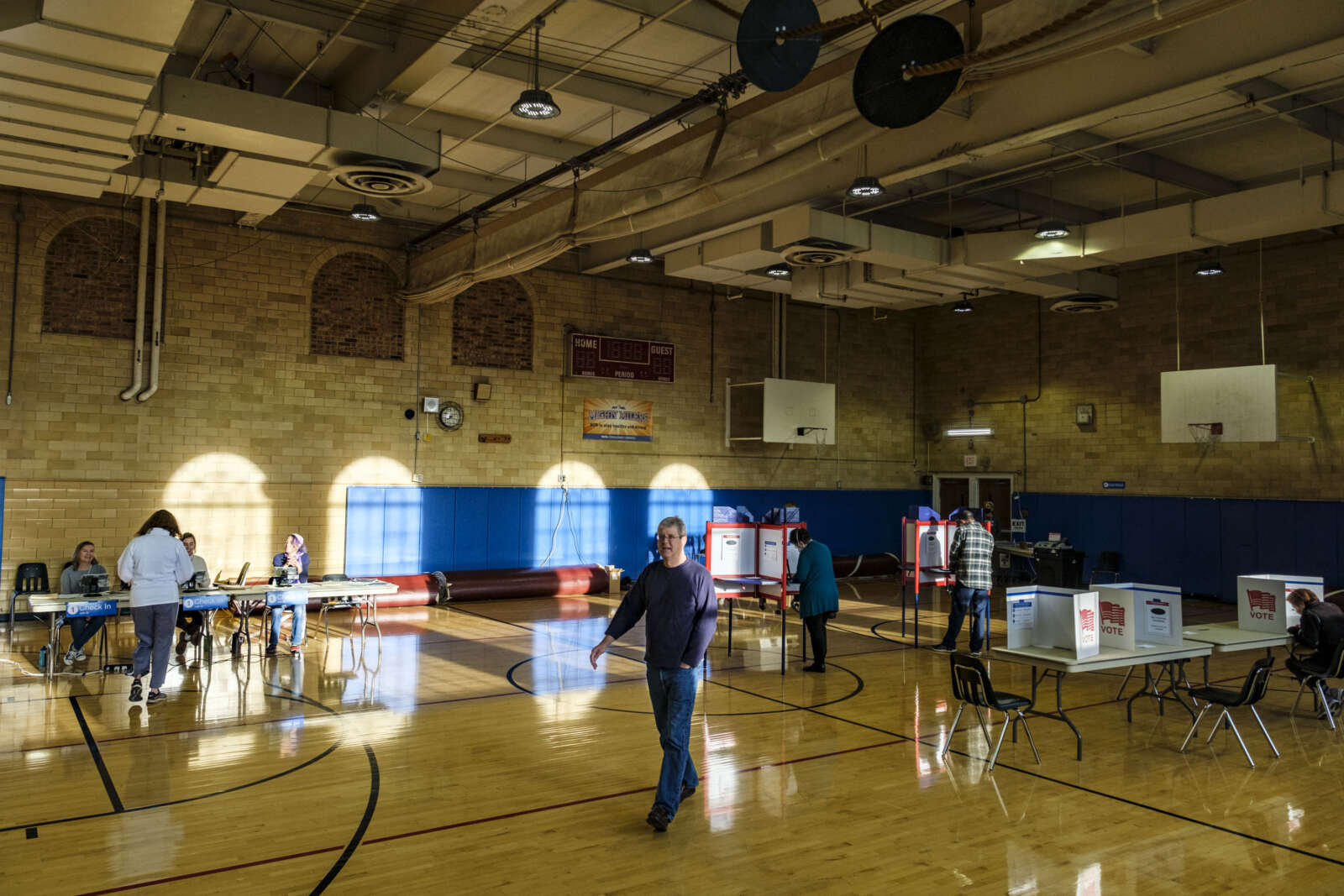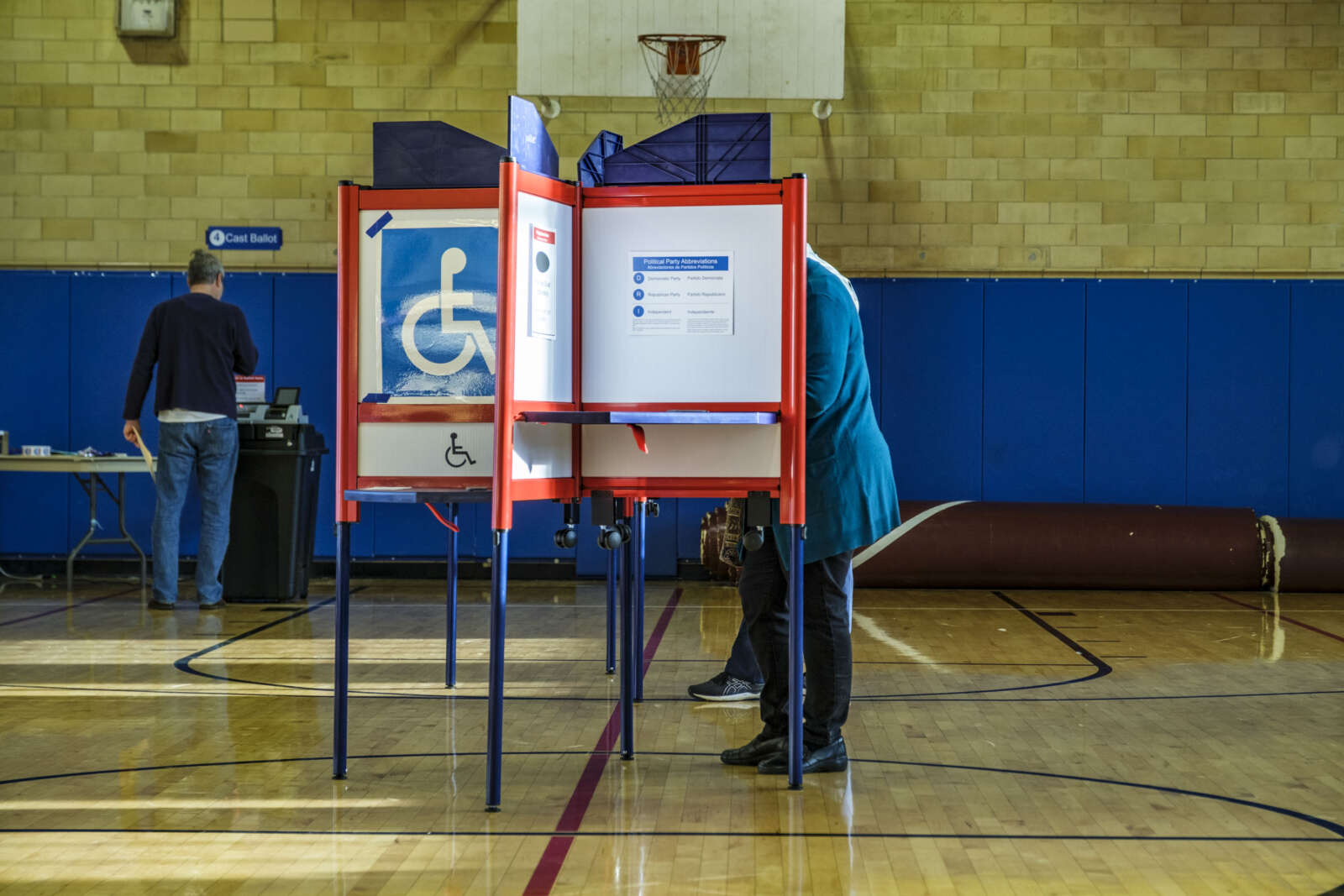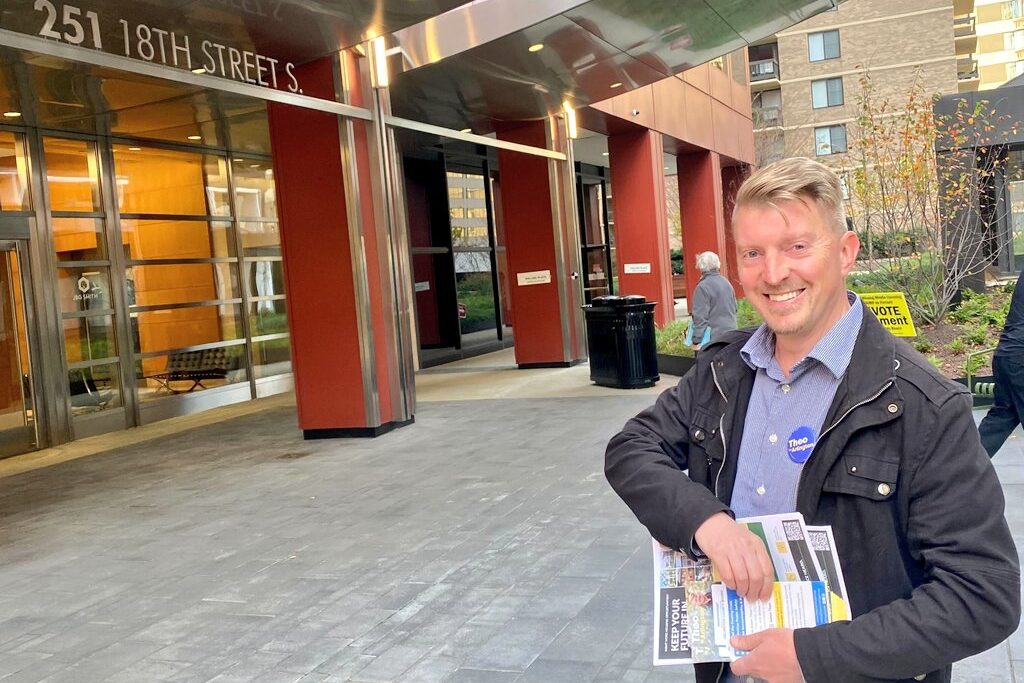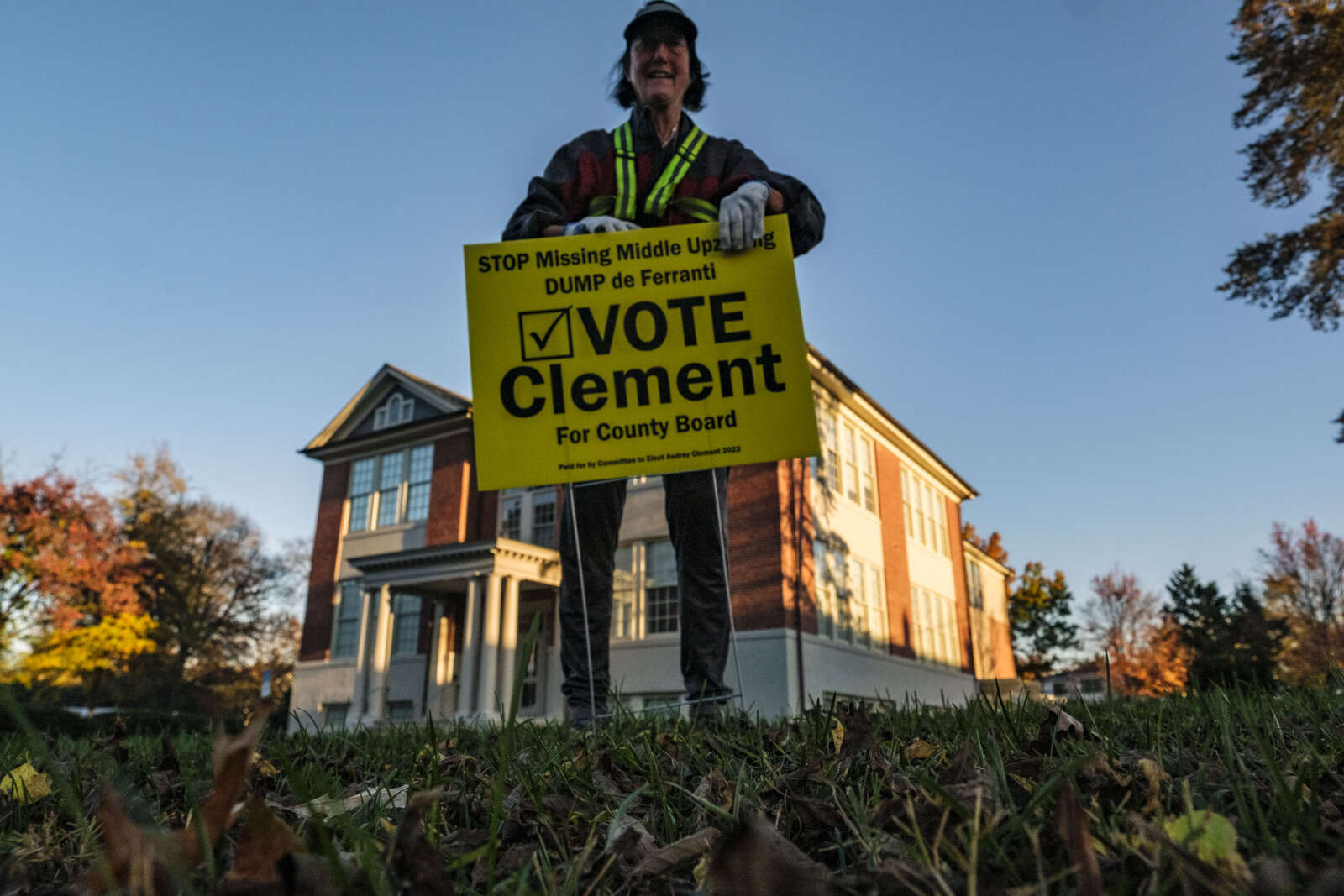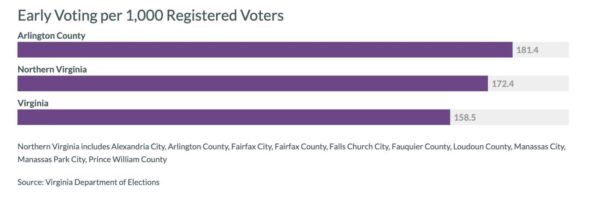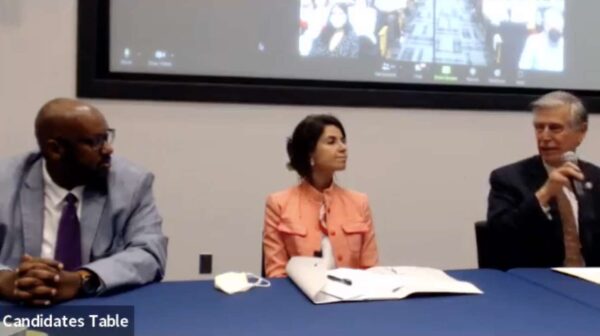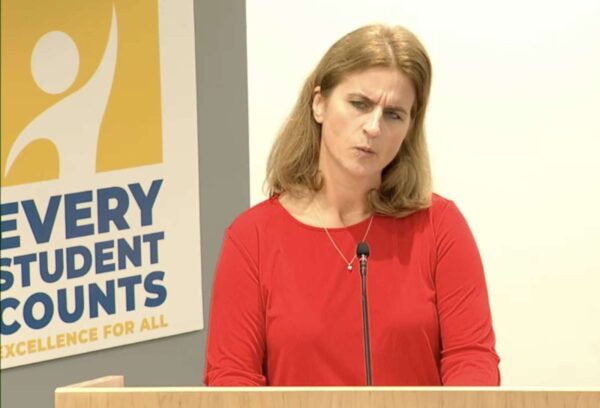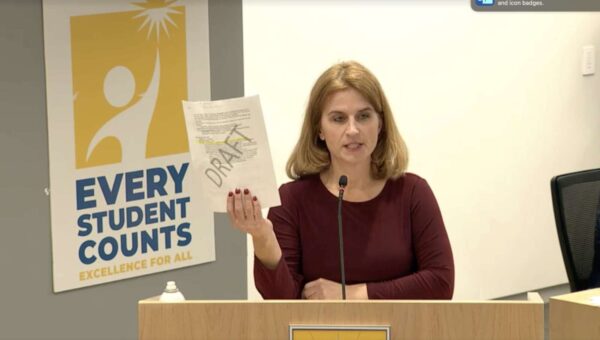
(Updated at 4:25 p.m.) After lockdowns, a fatal, apparent drug overdose, a racist threat of gun violence, and additional threats and gun-related incidents — all within the past few weeks — parents and teachers say they want more information from Arlington Public Schools.
But there’s a document floating around — outlining how School Board members should talk to the public, school staff, other board members and members of the media — that they say encourages the Board to be less transparent.
June Prakash, the president of Arlington’s teachers union, the Arlington Education Association, bashed the document as part of her remarks outlining steps APS can take to improve school safety.
“We need to tear up this ‘How We Work’ document from Board Docs,” she said in a School Board meeting on Thursday, garnering applause from people who attended the meeting.
The document, prepared by School Board Chair Reid Goldstein, was meant to serve as a discussion guide for a retreat a few weeks ago to onboard the newest member, Bethany Sutton.
It tells members to:
- Avoid conversations about workplace conditions with staff members without appropriate union representatives present.
- “Err on the side of vague” when talking to the community. Officials should refer them to previous public discussions where possible and if none exists, say they’ll bring the issue to the rest of the Board.
- Tell the Chair if they “are contemplating” responding to press inquiries and instead let the School & Community Relations staff advise them.
“The document was a discussion guide prepared by the Board Chair to advise Board members about responding to questions about topics that they don’t have full information on,” APS spokesperson Frank Bellavia told ARLnow. “The Board receives many questions about pending decisions or other operational topics that they have yet to be fully briefed on. The guidance meant that it is okay to say, ‘I don’t know and I will get back to you,’ versus a specific response each time.”
He added that the memo “is not and will not become policy,” and that community members have several ways to engage directly with School Board members, including member office hours.
Media inquiries are handled through dedicated APS staffers for efficiency’s sake, but this approach is reviewed annually, Bellavia noted.
Prakash, however, tells ARLnow that the AEA is disappointed in the document, while the APS watchdog group Arlington Parents for Education says these instructions will erode the trust parents have in their elected officials.
“How can you ethically say, ‘Don’t talk — or even listen — to staff members about working conditions? You need to visit the schools, you need to listen to talk to the students and the staff. When you start listening, they’ll start talking,” Prakash said Thursday.
Last year neighboring Alexandria’s public school system was roiled by a series of events that included a School Board policy — since revised — that discouraged members from talking to the media, and the superintendent advising members not to talk to the media about a fatal stabbing. Superintendent Gregory Hutchings abruptly resigned shortly thereafter.
During the Arlington School Board meeting, members discussed how the guidance in the document applied to collective bargaining discussions but not regular engagement with staff, according to Bellavia.
“There is no direction for the Board not to listen to staff, or any other members of the community,” he said. “In fact, the Board has affirmatively stated that they want to hear from staff. The Board Chair acknowledges that it was poorly worded in the handout.”
Arlington Parents for Education said in a statement that the memo “reflects a keen reluctance to engage in clear, honest and frank discussion with the APS community, including parents, teachers and administrators.”
“We urge the Board to commit itself to a greater level of candor in its dealings with all stakeholders, and to publicly disavow the guidance and the sentiment behind it, which implies that community members are problems to be managed and not stakeholders who the Board is elected to represent,” APE said.


